#John Henry Richardson
Explore tagged Tumblr posts
Text



Hollywood Chainsaw Hookers (1988)
#Horror#Horroredit#Hollywood Chainsaw Hookers#Fred Olen Ray#Linnea Quigley#Michelle Bauer#John Henry Richardson#CHB#1988#80s
220 notes
·
View notes
Text
I should be working on my dissertation, and have been, but I thought it'd be fun (for me :P) to loop you all in somehow. Therefore I bring you a very silly poll!
*best means whatever it means to you; feel free to propagandize
**yes, I deliberately excluded Shakespeare (from the poll, not the dissertation, lol)
#anghraine babbles#poll nonsense#ivory tower blogging#dissertation hell#william wordsworth#john ford#daniel defoe#thomas middleton#john webster#samuel johnson#edmund spenser#samuel richardson#michel de montaigne#henry fielding#olaudah equiano#jonathan swift#renaissance blogging#(read: early modern blogging but i'm too lazy to change my original tag)#eighteenth century blogging#sixteenth century blogging#seventeenth century blogging
25 notes
·
View notes
Text










Murder Obsession (Follia omicida, 1981)
"Why are you interested in the occult?"
"The only way to discover life's secret is through magic."
"I don't understand."
"Death. That exact moment when the body and soul separate, that which in theosophy is known as the astral body. We would have to capture that exact moment to analyse it, but to do this we would have to kill with our own hands, so that not even a wisp of life escapes us. Don't you agree?"
"And would you kill someone for this?"
"I think so."
#murder obsession#italian cinema#horror imagery#follia omicida#murder syndrome#1981#riccardo freda#antonio cesare corti#simon mizrahi#stefano patrizi#martine brochard#henri garcin#anita strindberg#laura gemser#john richardson#silvia dionisio#fabrizio moroni#franco mannino#carlo maria cordio#curious french italian coproduction. considering the era and the title i was expecting a grotty slasher of some kind but (whilst it#certainly has some elements of the stronger 80s sex and violence) director Freda seems more interested in stirring in dual elements#of giallo and gothic cinema. makes for a slightly fractured film; trippy dream sequences and a weirdly old fashioned score sit oddly with#the splatter and the grime. ends oddly‚ too‚ with a brush of occult oddness that feels like a strange left turn after the film has been at#pains to rationalise everything that came before it; in this it feels very much like Bennati's equally tonally mismatched The Killer#Reserved Nine Seats from the previous decade. this does feel a little out of time: a decade earlier and it would make sense but by 81#Italian cinema had mostly put away the toys being played with here‚ and whilst it's brushed with 80s appropriate nastiness it still feels#just a little old fashioned in shape and form. not bad tho: of interest to those sick freaks who will watch just about any italian horror#movie. it's me‚ im the sick freaks. strong cast too‚ tho apparently they all had a horrible time making it (Gemser in particular)#(her and Brochard actually; both were put in dangerous situations for some of the violent scenes)
6 notes
·
View notes
Text
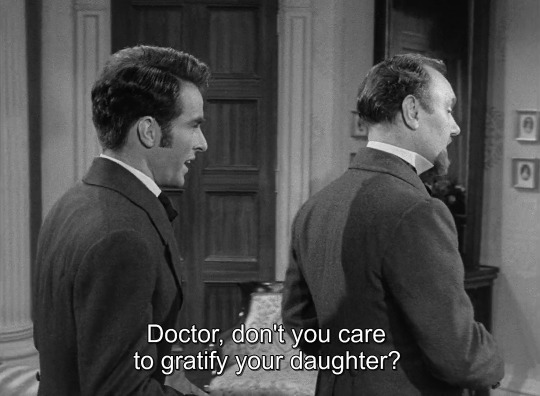
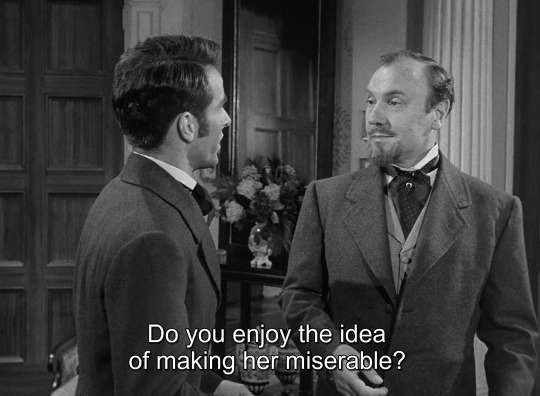

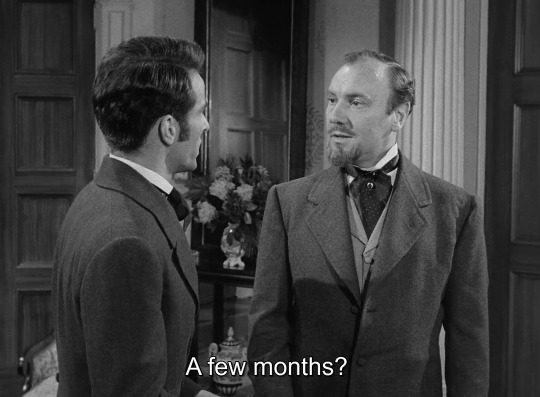
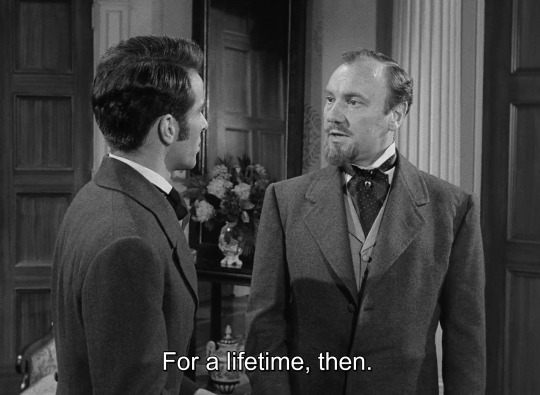
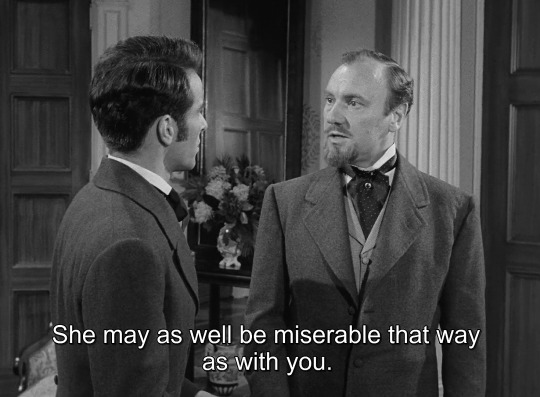

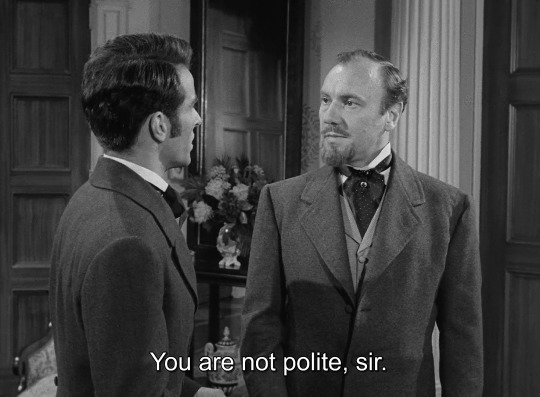
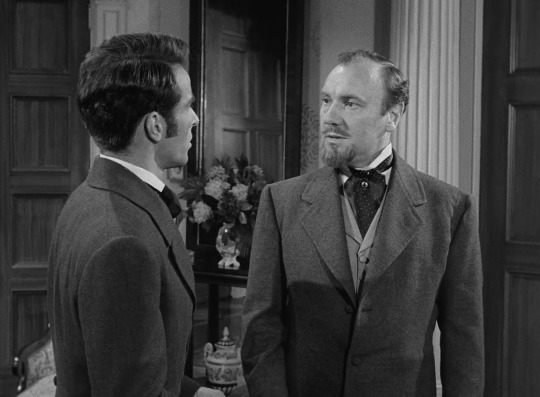


The Heiress (William Wyler, 1949).
#the heiress (1949)#the heiress#william wyler#henry james#montgomery clift#ralph richardson#leo tover#william hornbeck#harry horner#edith head#emile kuri#john meehan
33 notes
·
View notes
Text
Loss in common:
Enter Millie, The Prickly-but-Hopeful Fixer


[We note that, even after all this time, Millie's building carries the MoL Aquarian star of protection, and it's still Winchester Garage, not...whatever-her-maiden-name is.]
When we first meet Millie, she's bitter. As the one who "kept the lantern on," "the one who stayed," she's hurt and defensive, a lot like how Dean grows to be in latter seasons of SPN.
(Even post-demonicity, Dean is still expected to be the soft place to fall for everyone. Even after Jack kills Mary, Cas has this expectation of Dean's soft-heartedness: "it's possible he could work through this. One day, he may explode and let it all out and breathe deeply and move on.")
Anyway, Millie!
Her reunion with John is part passive-aggressive but loving. We see that Millie, like Dean, has intense abandonment trauma. She speaks abrasively-but-affectionately. She calls John "Kid, Kiddo, etc." which was a go-to with Dean for both Claire Novak and Jack Kline.
JOHN: Love what you've done with the place. MILLIE (passive-aggressive): Well, my husband and son walked out on me, so. It's the best I could do. (growing emotional) Dammit. Welcome home, Kiddo.
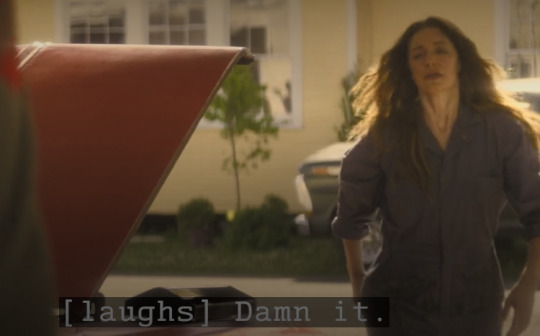
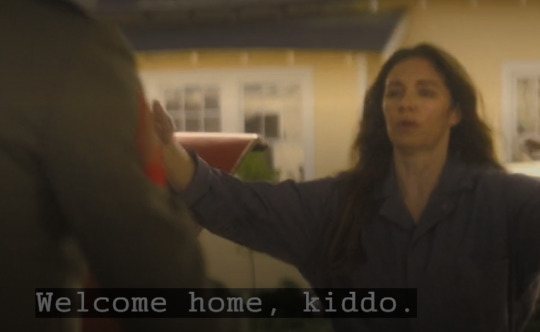

Gruff, abrasive, imperfect? Maybe. But full of love.
Alt John and Millie are united by the common loss of Henry, just as Prime John, Sam, and Dean were united by the common loss of Mary.
John thinks Henry walked out on them, but I think Millie is likely more complex. With her tacit knowledge of the Men of Letters, I think it's reasonable that she at least suspects that he might be dead.
What does that tell us about her? It tells us that the loss of Henry was unbelievably painful--it's probably easier for her to consider he left than the very likely truth: his demise.
She's a fixer. That's what she does.
She holds out hopeless hope.


JOHN: I'm fine, Mom. MILLIE: The Hell you are. You've been chasing your dad since he walked out that door. I know that's why you enlisted. But it is time to let the past go, kiddo.
But Millie isn't healed either. She hasn't let the past go, even as she pursues her dream of being a mechanic and owning a garage (like her father). Letting the past go hasn't helped her heal.
In fact, carrying on hunting and the MoL business is what seems to soothe her loss, giving her new meaning and purpose. Millie and John's push-pull dynamic with hunting is much like how it was with Ellen and Jo Harvelle.
///
But overall, we see what Henry's absence wrought. It's just as Henry feared in SPN Prime (9x17 Mother's Little Helper):
HENRY: Therein lies the problem. As our initiation grows closer, I... I worry that this might be a selfish endeavor on my part. JOSIE: Selfish. How? HENRY: If anything were to happen to me, what of John? Millie? JOSIE: They'd be proud to know that you answered the call. HENRY: No. My wife would be a widow, and my son fatherless. I don't expect you to understand. You don't have a fam--[he pauses] I'm sorry, Josie. I didn't mean it that way. JOSIE: I know, Henry. You're a good man. Millie is lucky to have you.
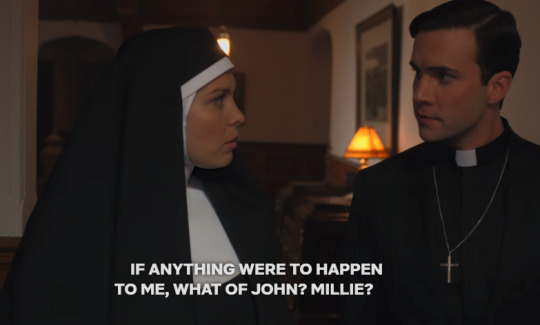

This directly parallels Cas and his allegiance to his work, Heaven, (Heaven is a truck, and Cas is a truck-driver; Dean thinks he's Josie when he's actually Millie).
It also beings to mind the visual of ("little John") Jack's entrance as he wanders around muttering, "Father. Fa-ther. Father. I need to find him. Castiel. He was supposed to be here," while looking for his long-expected, lost father in 13x01 Lost and Found.
But it's also an off-key parallel to prime John, who would become as Millie was, a bereft widower in the cold, floundering and ill-equipped to handle the dangers of the supernatural world.
///
Enter Mary, Action Hero

(Note: Mary's got a short range, so I love how she uses speed to her advantage to get larger targets off-balance.)
///

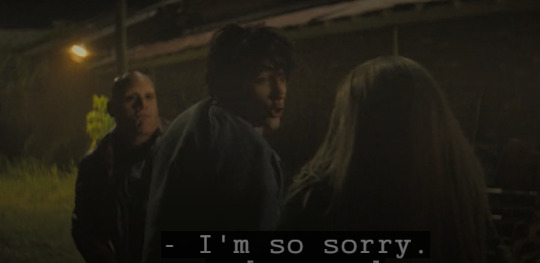
And importantly, John...is NOT allowed to look cool. It's a RULE. He's a dorky...little...guy.
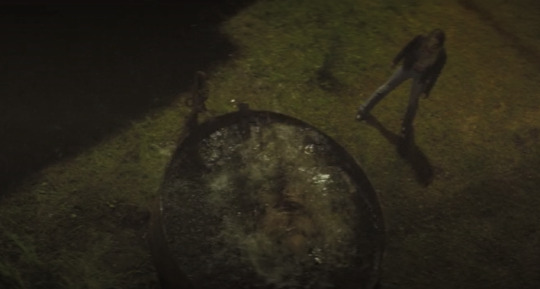
Mary knocks the demon into a blessed holy water vat, a call-forward to something prime John will do in SPNprime 01x21 Salvation.
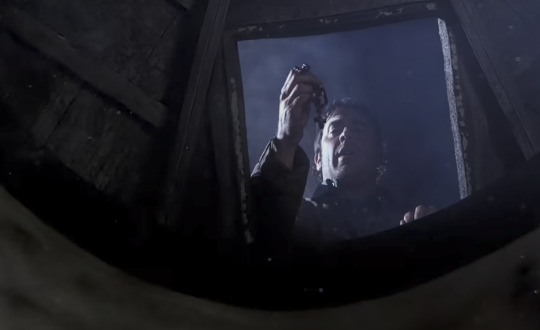
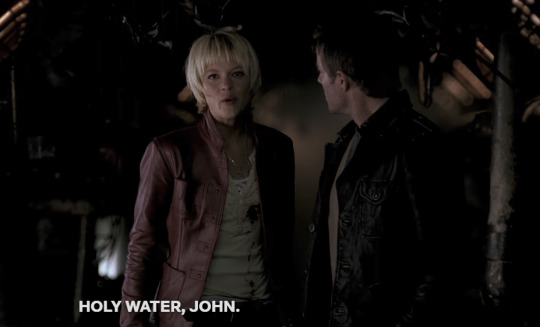
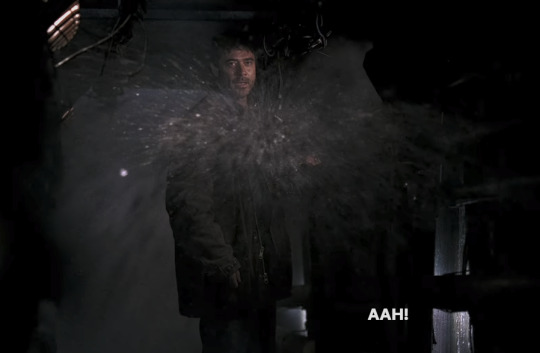
//
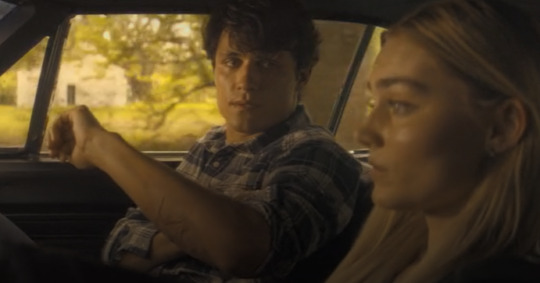
When Alt John and Alt Mary meet:
Mary's father has been absent (missing) from her life for a short time, and John's father Henry has been absent for most of his life, just as when Dean and Cas meet, theirs too is a tale of missing fathers. Cas's father was absent for all of his life, and Dean's flaky dad has been gone for a (relatively) short time. It also very obviously parallels Sam and Dean searching for their missing father.
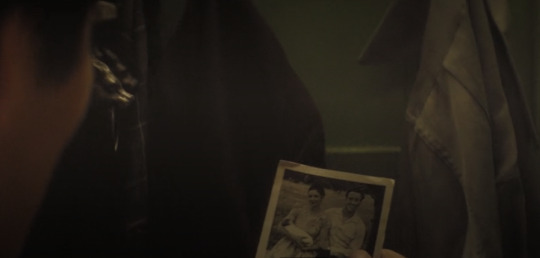

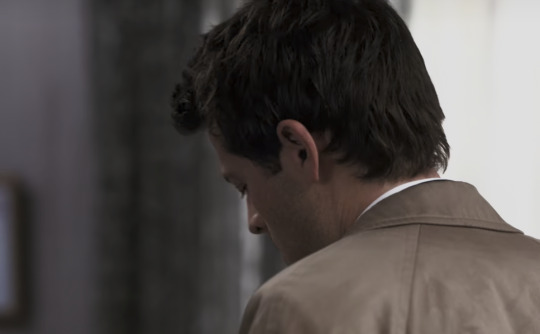

When they break inside the Men of Letters clubhouse, Mary keys into John's emotions about his father. This reminds me of of the first time Dean keyed in really hard to Cas's emotions in 5x16.
///
JOHN: How do you cope with it all? MARY (wryly, jokingly): I'll let you know when I find out. (SPNwin 1x01)
//
DEAN: Yeah, I get it. I know how you feel. CASTIEL: How do you manage it? DEAN (wryly, jokingly): On a good day, you get to kill [The Whore of Babylon]. (SPN 5x17)
///
Recent losses of friends & family:

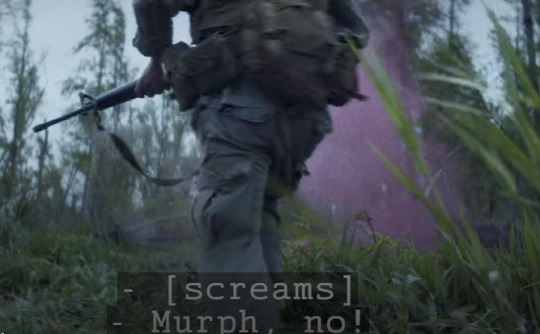
Additionally, Mary and John have both suffered recent losses. Mary lost her narrative twin Maggie, and John lost his comrade Murph to war.
[Mary's cousin went to Hell, just as Sam's brother went to Hell in season in vintage and mid-SPN.] Mary's hunting family was torn asunder, parents separating.
And John? WIth war, John signed up to fill a void left by his father, to find meaning in life.
We can even recall Dean's words to Gordon in 2x03 Bloodlust, how Dean struggled with the idea of "The Invincible Dad" and how his death made the word more terrifying, how it left a wound of depression inside of him that he sought to fill with meaning through work:
DEAN: Yeah. Yeah, you know. He was just one of those guys. Took some terrible beatings, just kept coming. So you're always thinking to yourself, he's indestructible. He'll always be around, nothing can kill my dad. Then just like that (snaps) he's gone. I can't talk about this to Sammy. You know, I gotta keep my game face on. (clears throat) But, uh, the truth is I'm not handling it very well. Feel like I have this - GORDON: Hole inside you? And it just gets bigger and bigger and darker and darker? Good. You can use it. Keeps you hungry. Trust me. There's plenty out there needs killing, and this'll help you do it. Dean, it's not a crime to need your job.
Dean lost his dad, and Gordon lost his sister. This emptiness is depression. John lost his dad and suffered that loss all his life. He signed up to the war for the GLORY OF PURPOSE. He didn't sign up to the war for more pain and grief, but that's exactly what he got.
What's the thing Dean can't fill up, not with booze or love or even sex? It's grief and pain. It can only be filled with love, which is what Cas's confession narratively does in 15x18.
It's also what Mary's love and the love of the Core 4 will eventually do for John.
///
SPN Prime season 8 side-parallel: Connections of recent grief ALSO calls to mind season 8, how Sam connected with Amelia when they had both suffered a loss, Sam lost his narrative twin to Purgatory and Amelia lost her husband to war.
Theirs was a fast-paced reactionary relationship born of grief, something that pinged and annoyed Amelia's father, leading him to be very passive-aggressive with Sam. (Her father was a dick, but he's both a soldier himself and does know her best and probably has her best interests in mind. He recognized that was Amelia mid-freakout, OOC. He pings that her out-of-characterness is a weird reaction to grief).
He was right to be concerned about the shallowness and stability of it. These types of reactionary relationships are well-known: they can be very shaky, melodramatic, idealized, and weak when stress-tested.

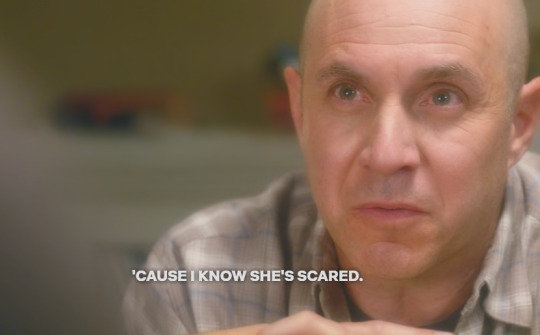
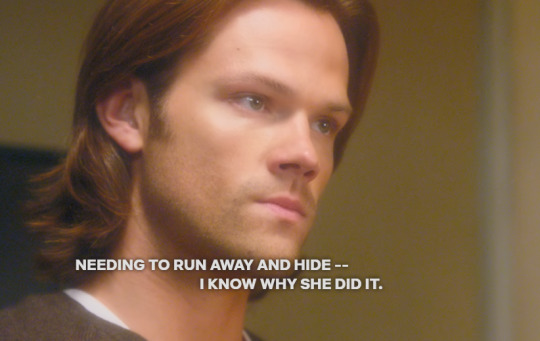
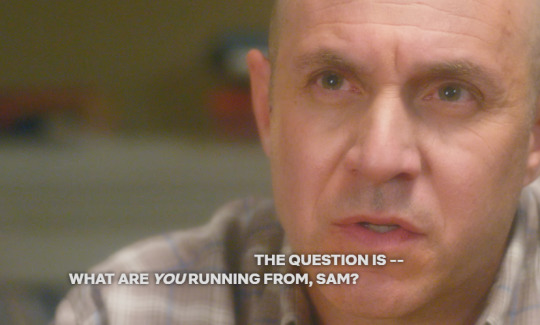
Sam (and vintage Dean) both have this tendency to be all-in or all-out when it comes to The Cause. Neither strike a balance very easily. They tend to either be ALL IN for the Perfect War with Perfect War Companions at Your Side...or rushing into something tenuous that represents a weak idea that winds up unsatisfying because it's not genuine: Perfect White Picket Fence or Howling-at-the-Moon Dishibitory Party Life.
In SPNwin, John is doing a lot of running, too. He rushes into the thing with Betty (weak and tenuous), then he rushes into war, he rushes into hunting, and he runs into the relationship with Mary.
This theme of Running into Danger / Running From Danger persists. John certainly struggles with it, BUT in a departure from his past behavior, this new thing with Mary gets a lot of stress-testing, eventually moving from limerence into turbulence, power struggle, and de-idealization. (SPNwin 1x12, The Tears of a Clown)
///
SO.
Mary and her ragtag gang of friends embark on a journey to look for the missing Samuel Campbell the way Sam and Dean look for the errant John Winchester, the way the Banes twins look for their mother Tasha Banes in Twigs, Twine, & Tasha Bane.
Certainly the core 4 are all "running scared" and clinging to one another, having all lost loved ones in a variety of ways. They are united in empathy over their respective losses:
John (dad, comrades)
Mary (narrative sibling, missing dad, splintered family and parental separation)
Carlos (whole family killed by a monster)
Lata (no-contact with her family because they allowed her beloved nanny to die; nonsensical/cruel hierarchy of human society)
Ada (husband lost to madness, son potentially a puppy-destined-to-be-wolf)
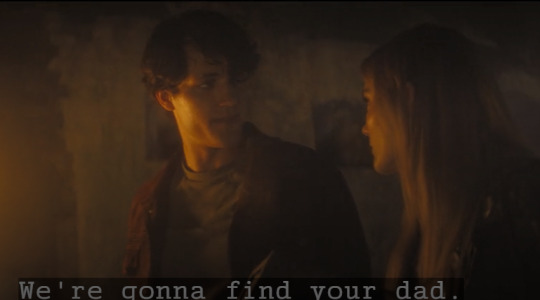

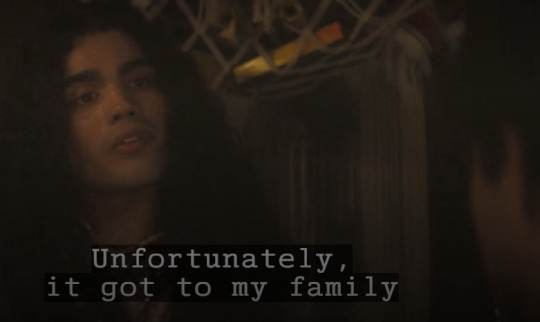
And finally we get Henry's letter:
If you're reading this, then I'm gone. I'm sorry I kept the truth from you, John. There's a dangerous world out there, and our family has fought that danger for centuries. The answers to all your questions are at the address below. I love you and your mother. Always.
I think this idea of Henry Winchester as a secret-keeper, and as Mary-prime as a secret-keeper fed into what we know about John-prime turned into: a neuroses of paranoia and over-preparedness.
But thanks to Dean, Alt John has some new tools to work through this: knowledge. Even his anger is useful, openly telling his mother how disappointed and betrayed he feels over being kept in the dark. For her part, she gives him her emotional truth: that she only wanted to protect him.
It's the first healing step for both of them.
#writer robbie thompson#director glen winter#millie winchester#henry winchester#john & millie#henry cas parallels#john cas parallels#john sam parallels#millie dean parallels#john jack parallels#josie sands#lata#alt john#prime john#prime dean#prime cas#alt mary#amelia richardson#spnwin 1x01
10 notes
·
View notes
Text
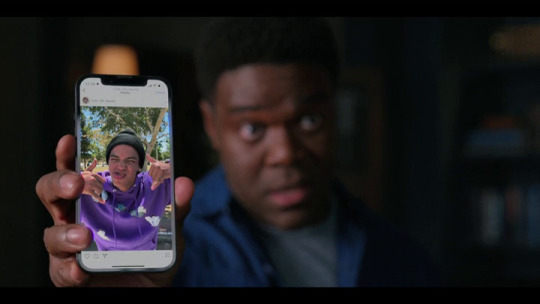

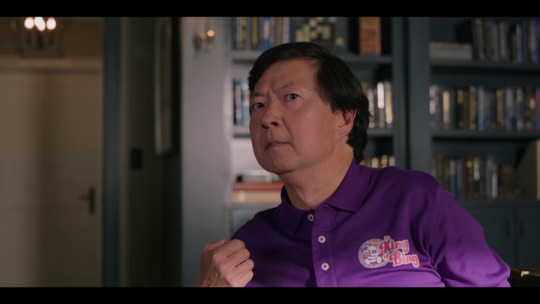
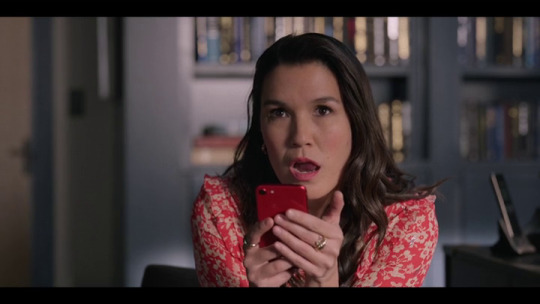

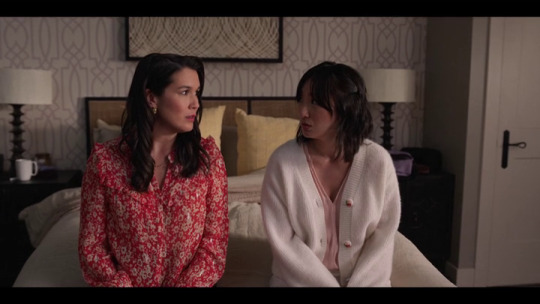



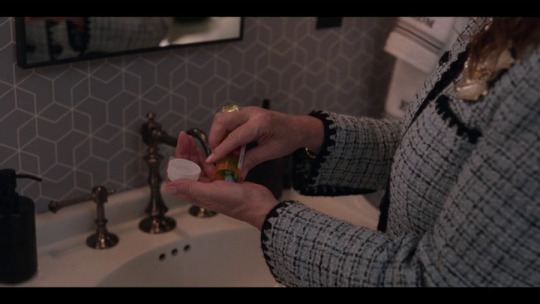

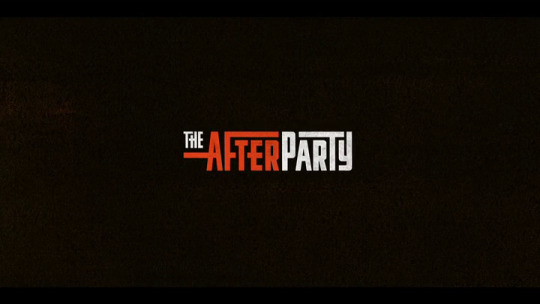
What is going on?
The Afterparty - Season 2, Episode 8
Mr. Feng
Created by Christopher Miller
Blackram Hall: whodunit, murder mystery, hardboiled, pulp, crime, thriller, italian giallo, noir and neo-noir, detectives and serial killers, spy stories, vintage, manor houses, art, life and death.
Avatar pic by Mitchell Turek
#HENRY FORD.#HARD-CORE RACIST.#Chris Miller#Christopher Miller#the Afterparty#detective stories#murder mystery#Tiffany Haddish#Sam Richardson#Zoë Chao#Elizabeth Perkins#Zach Woods#Paul Walter Hauser#Poppy Liu#Anna Konkle#Jack Whitehall#Vivian Wu#John Cho#Ken Jeong#bao bing#apple tv+
10 notes
·
View notes
Quote
The terminology used for Humphrey’s palace is revealing. Several writers insist that he called it ‘Bella Court’, although apparently with little foundation. It seems to have been known as ‘the Pleasaunce’ (‘placentia’) during Gloucester’s lifetime, as letters patent dated ‘at his manor of Plaisance’ in 1445 attest, and it is referred to as such throughout Queen Margaret’s building accounts for 1447. The term was used from the later fourteenth century for relatively intimate buildings detached from main ranges and intended for use by a lord’s favoured circle. Perhaps the most notable example of this is type of building is the ‘Pleasaunce’ at Kenilworth, Warwickshire, fashioned for Henry V around 1414. This was a moated islet, approached, like Greenwich, by water, and accommodating a timber pavilion comprising a hall and chambers. Indeed, Gloucester may have intended deliberately to emulate Henry’s idyllic retreat, just as Bedford had replicated their brother’s ‘pleasaunce’ at Fulbroke, also using brick rather than timber.
Amanda Richardson, "Greenwich's first royal landscape: the lost palace and park of Humphrey of Gloucester" Southern History, 34, 2012.
#la pleasaunce#humphrey duke of gloucester#john duke of bedford#henry vi#kenilworth castle#fulbroke#elite landscapes#historian: amanda richardson
1 note
·
View note
Text
"THE HISTORY OF TOM JONES, A FOUNDLING" (1997) Review

"THE HISTORY OF TOM JONES, A FOUNDLING" (1997) Review
The year 1963 saw the release of Tony Richardson's Academy Award winning adaptation of Henry Fielding's 1749 novel, "The History of Tom Jones, a Foundling". Another thirty-four years passed before another adaptation of the novel appeared on the scene. It turned out to be the BBC's five-episode miniseries that aired in 1997.
"THE HISTORY OF TOM JONES, A FOUNDLING" is a comic tale about the life and adventures of an English foundling, who is discovered in the household of a warm-hearted landowner in Somerset named Squire Allworthy. The latter adopts the child and Tom Jones grows up to be a lusty, yet kindly youth; who falls in love with one Sophia Western, the only child of Allworthy's neighbor, Squire Western. Tom is raised with the squire's nephew, a falsely pious and manipulative young man named Mr. Blifil. Because the latter is Allworthy's heir, Sophia's father wishes her to marry Mr. Blifil, so that the Allworthy and Western estates can be joined as one. Unfortunately for Squire Western and Mr. Blifil, Sophia is in love with Tom. And unfortunately for the two young lovers, Tom is discredited by Mr. Blifil and his allies before being cast away by Squire Allworthy. In defiance of Squire Western's wishes for her to marry Mr. Blifil, Sophia (accompanied by her maid, Honour) runs away from Somerset. Both Tom and Sophia encounter many adventures on the road to and in London, before they are finally reconciled.
Actually, there is a lot more to "THE HISTORY OF TOM JONES, A FOUNDLING". But a detailed account of the plot would require a long essay and I am not in the mood. I have noticed that the 1997 miniseries has acquired a reputation for not only being a first-rate television production, but also being superior to the 1963 Oscar winning film. As a five-part miniseries, "THE HISTORY OF TOM JONES, A FOUNDLING" was able to adhere more closely to Fielding's novel than the movie. But does this mean I believe that the miniseries is better than the movie? Hmmmm . . . I do not know if I can agree with that opinion.
I cannot deny that "THE HISTORY OF TOM JONES, A FOUNDLING" is a well made television production. Director Metin Hüseyin did an excellent job of utilizing a first-rate production crew for the miniseries. Cinders Forshaw's photography was well done - especially in Somerset sequences featured in the miniseries' first half. Roger Cann's production designs captured mid-18th century England in great detail. And Rosalind Ebbutt's costumes designs were not only exquisite, but nearly looked like exact replicas of the fashions of the 1740s. The look and style of "THE HISTORY OF TOM JONES, A FOUNDLING" seemed to recapture the chaos and color of mid-18th century England.
"THE HISTORY OF TOM JONES, A FOUNDLING" could also boast some first-rate performances. The miniseries featured solid performances from the likes of Christopher Fulford and Richard Ridings as Mr. Blifil's allies, Mr. Square and Reverend Thwackum; Kathy Burke, who was very funny as Sophia's maid, Honour; Celia Imrie as Tom's London landlady, Mrs. Miller; Peter Capaldi as the lecherous Lord Fellamar; Tessa Peake-Jones as Squire Allworthy's sister Bridget and Benjamin Whitrow as the squire. The episode also featured solid turns from the likes of Kelly Reilly, Michelle Fairley, Camille Coduri, Matt Bardock, Roger Lloyd-Pack, and Sylvester McCoy. Max Beesley was solid as Tom Jones. He also had good chemistry with his leading lady, Samantha Morton, and did a good job in carrying the miniseries on his shoulders. However, I do feel that he lacked the charisma and magic of Albert Finney. And there were times in the miniseries' last two episodes, when he seemed in danger of losing steam.
But there were some performances that I found outstanding. Brian Blessed was deliciously lusty and coarse as Squire Western, Allworthy's neighbor and Sophia's father. I really enjoyed his scenes with Frances de la Tour, who was marvelous as Sophia's snobbish and controlling Aunt Western. Lindsay Duncan gave a subtle performance as the seductive Lady Bellaston. James D'Arcy was outstanding as Squire Allworthy's nephew, the sniveling and manipulative Mr. Blifil. Ron Cook gave the funniest performance in the miniseries, as Tom's loyal sidekick, Benjamin Partridge, who had earlier suffered a series of misfortunes over the young man's birth. Samantha Morton gave a superb performance as Tom's true love, Sophia Western. Morton seemed every inch the graceful and passionate Sophia, and at the same time, conveyed the strong similarities between the young woman and her volatile father. But the one performance I truly enjoyed was John Sessions' portrayal of author Henry Fielding. I thought it was very clever to use Sessions in that manner as the miniseries' narrator. And he was very entertaining.
The producers of the miniseries hired Simon Burke to adapt the novel for television. And I believe he did an excellent job. I cannot deny that the miniseries' running time allowed him to include scenes from the novel. Thanks to Burke's script and Hüseyin's direction, audiences were given more details on the accusations against Jenny Jones and Benjamin Partridge for conceiving Tom. Audiences also experienced Bridget Jones' relationship with her cold husband and the circumstances that led to the conception of Mr. Blifil. Judging from the style and pacing of the miniseries, it seems that Hüseyin was inspired by Tony Richardson's direction of the 1963 film. There were plenty of raunchy humor and nudity to keep a viewer occupied. More importantly, "THE HISTORY OF TOM JONES, A FOUNDLING" proved to be a fascinating comic epic and commentary on class distinctions, gender inequality and social issues.
However, I still cannot agree with the prevailing view that the miniseries is better than the 1963 movie. Mind you, the latter is not perfect. But the miniseries lacked a cinematic style that gave the movie a certain kind of magic for me. And due to Hüseyin and Burke's insistence on being as faithful to the novel as possible, the miniseries' pacing threatened to drag in certain scenes. The scenes featuring Tom and Partridge's encounter with an ineffectual highwayman, their viewing of a puppet show, and a good deal from the London sequences were examples of the miniseries' slow pacing. I could not help feeling that "THE HISTORY OF TOM JONES, A FOUNDLING" could have easily been reduced to four episodes and still remain effective.
I also had a few problems with other matters. One, I never understood why Lady Bellaston continued her campaign to get Sophia married to Lord Fellamar, after Squire Western prevented the peer from raping his daughter. Why did she continued to make life miserable for Tom after receiving his marriage proposal . . . the same proposal that she rejected with contempt? And what led Sophia to finally forgive Tom for the incident with Mrs. Waters at Upton and his marriage proposal to Lady Bellaston? After he was declared as Squire Allworthy's new heir, Sophia refused to forgive Tom for his affair with Lady Bellaston. But the next shot featured Tom and Squire Allworthy returning to Somerset . . . and being greeted by Sophia, along with hers and Tom's children. WHAT HAPPENED? What led Sophia to finally forgive Tom and marry him? Instead of explaining or hinting what happened, Burke's script ended on that vague and rather disappointing note.
But despite my problems with "THE HISTORY OF TOM JONES, A FOUNDLING", I cannot deny that I found it very enjoyable. Director Metin Hüseyin and screenwriter Simon Burke did a first-rate job in bringing Henry Fielding's comic opus to life. They were ably assisted by an excellent production staff and fine performances from a cast led by Max Beesley and Samantha Morton.
#tom jones#the history of tom jones#henry fielding#max beesley#samantha morton#benjamin whitrow#tessa peake jones#brian blessed#frances de la tour#james d'arcy#richard ridings#camille coduri#john sessions#kathy burke#lindsay duncan#peter capaldi#roger lloyd-pack#sylvester mccoy#jacobite rising#celia imrie#kelly reilly#michelle fairley#metin huseyin#simon burke#julian firth#michael cronin#ron cook#tom jones 1963#tony richardson#brian pettifer
1 note
·
View note
Text

Bad movie I have Super Fly 1972
#Super Fly#Ron O'Neal#Carl Lee#Sheila Frazier#Julius Harris#Charles McGregor#Nate Adams#Polly Niles#Yvonne Delaine#Henry Shapiro#K.C.#James G. Richardson#Make Bray#Al Kiggins#Bob Bonds#Fred Ottaviano#Alex Stevens#Harry Manson#Floyd Levine#Sig Shore#Chris Arnett#Cecil Alonzo#Gene Chambers#John Williams#E. Preston Reddick#Lorraine Horn#Nick Sands#Bob Richards#Nita Michaels#Vicki McLaughlin
1 note
·
View note
Text
Book Review - ‘Tudors and Stuarts on Film: Historical Perspectives’ by Susan Doran and Thomas Freeman
This is a book that I first read while at university while studying for my two history degrees. It’s quite a comprehensive look at the Tudors on film, at least up to 2009 when the book was published. Of course, there have been several new adaptations of the Tudor stories published in the last decade and a half but naturally these are not discussed, so the book does now feel a little outdated, but…

View On WordPress
#a man for all seasons#Anne Boleyn#Anne of the Thousand Days#Book#Book Review#christopher haigh#Elizabeth I#Film#films#glenn richardson#Henry VIII#historical films#historical movies#John Guy#movie#movies#Non Fiction#Review#Stuart#Stuarts#susan doran#thomas freeman#Thomas More#Tudor#Tudors
0 notes
Text
Preview: The Best of Tharg's Terror Tales
The Best of Tharg's Terror Tales preview. Tharg the Mighty presents the creepiest tales to ever grace the pages of the galaxy's greatest comic! #comics #comicbooks #graphicnovel
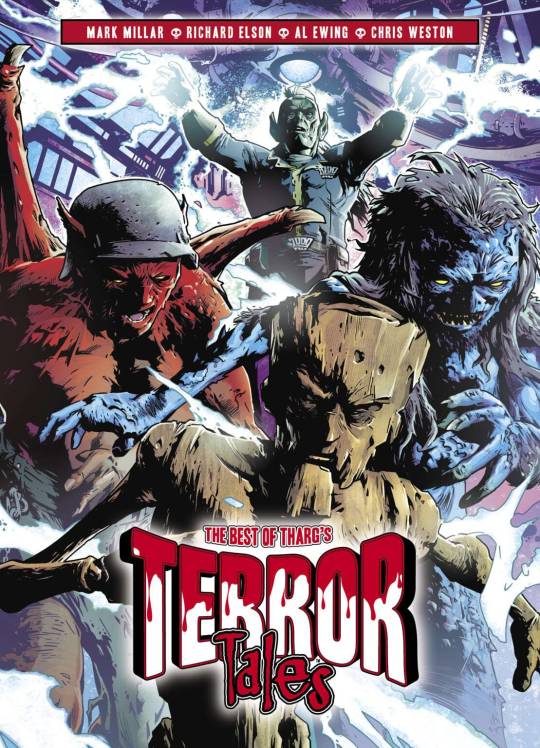
View On WordPress
#al ewing#alan mckenzie#alec worley#arthur wyatt#dom reardon#edmund bagwell#Eric Bradbury#graphic novel#graphic novels#greg staples#Henry Flint#john smith#keith richardson#kek-w#laura bailey#mark millar#mick austin#p.j. holden#rebellion#simon coleby#simon spurrier#the best of thargs terror tales#tom foster
0 notes
Text
Here's a remade masterpost of free and full shakespeare adaptations! Thanks @william-shakespeare-official for this excellent post. Unfortunately, a lot of the links in it are broken, so I thought I'd make an updated version (also I just wanted to organize things a bit more)
Anthony and Cleopatra: ~ Josette Simon, Antony Byrne & Ben Allen - 2017
As You Like It: ~ At Wolfe Park - 2013 ~ Kenneth Brannagh's - 2006
Coriolanus: ~ NYET Alumni - 2016 ~ Tom Hiddleston - 2014 ~ Ralph Fiennes - 2011
Cymbelline: ~ Michael Almereyda's - 2014
Hamlet: ~ David Tennant - 2009 ~ Ethan Hawke & Diane Venora - 2000 ~ Kenneth Branagh's - 1989 ~ BCC's Part One & Two - 1990 ~ Broadway - 1964 ~ Christopher Plummer - 1964 ~ Laurence Olivier's - 1948
Henry IV: ~ BBC's Part One & Two - 1989 ~ The Brussel's Shakespeare Society's - 2017
Henry V: ~ The BBC's - 1990 ~ Laurence Olivier's - 1944
Julius Caesar: ~ Phyllida Lloyd's - 2019 ~ The BBC's - 1979 ~ John Gielgud - 1970
King Lear: ~ The RSC's - 2008 ~ Laurence Olivier - 1983 ~ The BBC's - 1975 ~ James Earl Jones - 1974 ~ Orson Wells - 1953
Love's Labour's Lost: ~ Calvin University - 2016
Macbeth: ~ Antoni Cimolino & Shelagh O'Brien's - 2017 ~ Ian McKellen & Judi Dench - 1969 ~ Sean Connery - 1961
Measure for Measure: ~ Hugo Weaving - 2019 ~ The BBC's - 1990
The Merchant of Venice: ~ Al Pacino - 2004 ~ Trevor Nunn & Chris Hunt - 2001 ~ The BBC's - 1980 ~ Lawrence Olivier - 1973
The Merry Wives of Windsor: ~ The Royal Shakespeare Company's - 1982
A Midsummer Night's Dream: ~ Oliver Chris & Gwendoline Christie - 2019 ~ City of Columbus's - 2018 ~ Julie Taymor's - 2014 ~ The Globe's - 2013 ~ The BBC's - 1988 ~ Lindsay Duncan & Alex Jennings - 1986
Much Ado About Nothing: ~ Shakespeare in the Park - 2019 ~ Kenneth Branagh - 1993 ~ The BBC's - 1984
Othello: ~ The BBC's Part One & Two - 1990
Richard II: ~ David Tennant - 2013 ~ Deborah Warner's - 1997 ~ The BBC's - 1978
Richard III: ~ Ian McKellen - 1995 ~ Laurence Olivier - 1955
Romeo and Juliet: ~ Simon Godwin's - 2021 ~ The BBC's - 1988 ~ Laurence Harvey & Susan Shentall - 1954
The Taming of the Shrew: ~ Ontario production? ~ American Conservatory Theater - 1976 ~ Richard Burton & Elizabeth Taylor - 1967 ~ Mary Pickford & Samuel Taylor - 1929
The Tempest: ~ Gregory Doran's - 2017 ~ The BBC's - 1988
Timon of Athens: ~ Barry Avrich's - 2024
Troilus and Cressida: ~ Audio Production ~ This one I found on youtube? - 2016
Titus Andronicus: ~ Anthony Hopkins - 1999
Twelfth night: ~ Texas Shakespeare Festival's - 2015 ~ Alec Guinness, Joan Plowright & Ralph Richardson - 1970
Two Gentlemen of Verona: ~ Katherine Steweart's - 2018 ~ The BBC's
The Winter's Tale: ~ Antony Sher - 1999 (Warning: they don't have a bear...)
Bonuses:
Time Loop Hamlet! (A personal fav of mine)
Rock Opera Hamlet???
Shakespeare animated tales
The Complete Works Of Shakespeare Abridged comedy
Romeo and Julieta: A Día de los Muertos Love Story
There’s also many other Latine Shakespeare adaptations listed in this archive
From the original post:
A Midwinter's Tale, about a man trying to make Hamlet.
Russian Hamlet here
Here's Scotland, PA, the 2001 modern Macbeth retelling.
Rave Macbeth for anyone interested is here.
This one is the Taming of the Shrew modern retelling.
The french Romeo & Juliet musical with English subtitles is here!
Here's the 1948 one,
the Orson Wells Othello movie with Portuguese subtitles there
A Lego adaptation of Othello here.
Here's commentary on David Tennant's Richard II
#phew! this took me like four hours#btw please lmk if any of y'all have tennant & tate's Much Ado anywhere#been searching everywhere#anyway! yeah#big thanks to everyone who recommended some of these versions to me#and dude. shakespeare official. you did an incredible job compiling all this in the first place#i was originally just gonna add on to the post#but it already had so much going on that i wanted to take it somewhere else for a fresh start#shakespeare#fresh from the river#save#mini banger#humble banger
1K notes
·
View notes
Text
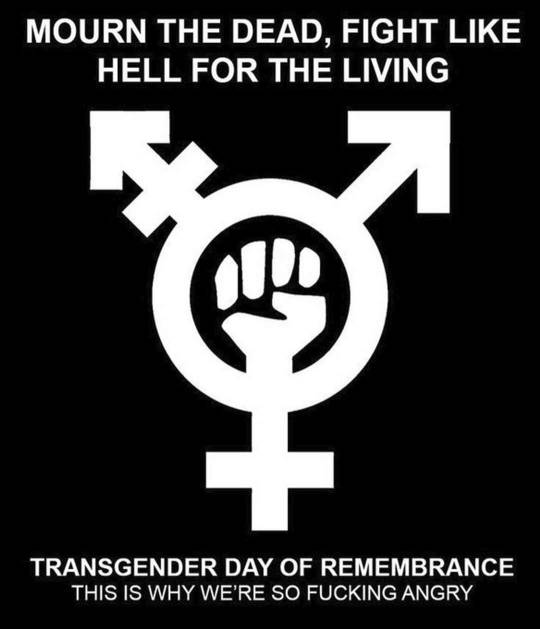
TRANS DAY OF REMEMBRANCE 2024 - November 20
Say their names:
NOVEMBER 2023
Savannah Williams
Bernardo Panteleon
Pepper Mychel Peterson
Mariah Ruby Rachel Williams
F. L. “Bubba” Copeland
Lola Laperla Ebony McDaniels
Shandon Floyd
Tiesha McFarland
Kejuan Richardson
Amiri Jean Reid
Mya Finch
Travis Stimeling
DECEMBER 2023
Demita Jo Armstrong
Onteris Owens-Campbell
Jesse Viviano White
Star Possum
Jermaine Golden
Meghan Riley Lewis
Zoey Flye
Madison Montana
Care Hansen
Amber Minor
Ashlei Jasmine Colgate-Edwards
Fleetwood Mars Mozee
Shelby “Lexus” Riddick-Walker
Kimbella Blackshear
Easley Jeffcoat
Tripp Schultz
JANUARY 2024
Lady Fabian Sanchez
James Moen
Dana Randolph “Desiree A. DeMornay”
Quin Joy
Sasha Williams
Jennell Jaquays
Sarina Mihailoff
Sasha Washington-Cohen “Sasha Fierce”
Guelila “Gigi” Iyob
Videl Lombardo
Savannah Rose Rivers Amore
Kathy “Otter” Ottersten
Robin Valentina
Forrest Douglas Buckley
Giselle Stone
Tristan Michael Bustos “Tristyn St. Clair”
Kitty Monroe
FEBRUARY 2024
Natalia Skye
Teddy Reese Curran
Erick Krouse
Noah Jackson Chase
Ellie Walsh
Nex Benedict
Emma “África” Parrilla García
Blakely Hanson
Righteous TK “Chevy” Hill
Ashton Myles Clatterbuck
Madison Nicole Spann “Madison St. Claire”
Cecilia Gentili
MARCH 2024
Diamond Cherish Brigman
Elliot Ganiel
Fae Morganna Barbone
Aurelia A. Legassey
Alex Franco
Meraxes Medina
Ty Geissinger “Ty Holiday”
APRIL 2024
Andrea Doria Dos Passos “Maggie”
Yella Clark
Allister Matthews
Tiffany Azalea Monceaux
Tara Fable
Randy Dudley
River Neveah Goddard
Tee “Ace” Arnold
George A. Schappell
Starr Brown
Robbi Mecus
Basil Brown
MAY 2024
Tayy Dior Thomas
Kita Bee
Kamryn “Cantrell” Smith
Jazlynn Johnson
Daelicious O’hare Mizani
Darri C. Moore
Niomi Jenkins
Michelle Henry
Saanti Bonét Valentino
JUNE 2024
Pauly Likens
M. Tapia
Lynn Conway
Liara Kaylee Tsai
JULY 2024
Dylan Gurley
Griffin Shaun Sivret
Kenji Zemonta Spurgeon
Ev Smith
Shannon Boswell
Levi Castillo
Lily Autumn Rose
Monique Brooks
AUGUST 2024
Noelle Woolley
Indiana Grayson
Vanity Williams
Tai’Vion Lathan
Jhzara “Femmie” Williams
Baxter Zachary Hawk
SEPTEMBER 2024
Kassim Omar
Liam Johns
Mahdia Lynn
Cass Trystero
Chilli Pepper
Barbie Iceland “Redd China”
OCTOBER 2024
Honee Daniels
Serenity Birdsong
Adela Vázquez
San Coleman
Zeta Muirgen Seraph Haber
Despite our best efforts, the names on our list are only those who had the privilege of recognition, the fortune of discovery, or the extraordinary courage to leave indelible proof of their true selves for us to mourn. So many unknown and uncounted people remain that even years from now we will learn the names of people in our community who died this year without the recognition they deserved.
https://www.transremembrance.org/domestic-list
#tdor#martyr#transrightarehumanrights#protecttranskids#lgbtqia#capitalism#imperialism#racism#transphobia#transmisogynoir
1K notes
·
View notes
Text
1982: The Greatest Geek Year Ever Review- A Docuseries That Brought Me Back to My Childhood in a Great Way
The fact that 1982 is a year that has been one that made me who I am today is pretty incredible to me. That year had so many of my favorite movies. ET the Extraterrestrial is a film that has been one of the most influential movies of my lifetime. I was only 8 years old at the time, but I loved that movie so much. I still remember watching it at a drive-in theater, and I felt ET and Elliot (Henry…
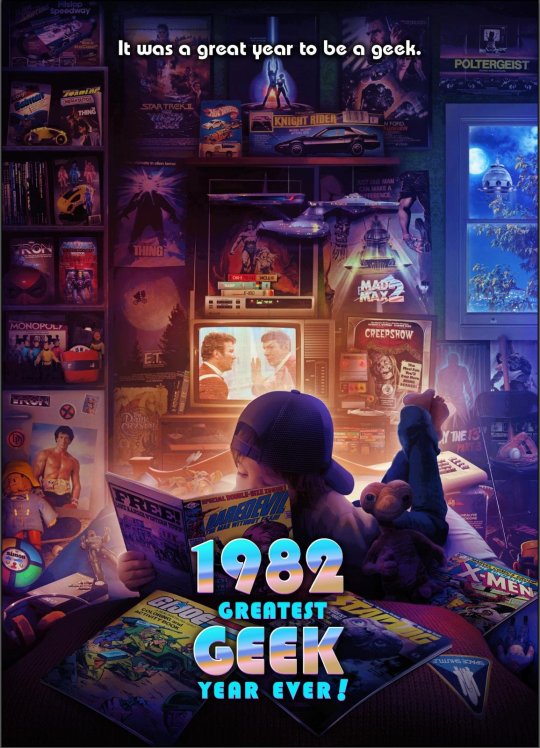
View On WordPress
#1982 The Greatest Geek Year Ever#Adrianne Barbow#Aslem Richardson#Barry Bostwick#Brea Grant#Bryan Fuller#Bryan Rafferty#Dean Devlin#Dee Wallace#Don Coscarelli#Drew McWeeny#Grea Drake#Henry Winkler#John Carpenter#Leonard Maltin#Marc Guggenheim#Marc Miller#Mark S Altman#Paramount Pictures#Paul Schrader#Robert Meyer Burnett#Roger Cormen#Ron Howard#Scott Mantz#Shawn Mendez#the CW#Wes Craven
1 note
·
View note
Text
Cracks in the Armor - William's unseen trust in Jamie
Over on TikTok, I received a comment from a follower insinuating that William must trust Jamie if he asks for his help with Jane and her sister, Fanny at the end of season 7.
I wanted to reply with a long-form explanation because there is an interesting passage in ‘Go Tell the Bees’ that leans into this idea of William not necessarily realizing his trust in Jamie until later on.
But first, I need to remind everyone of the differences between the book and the show when it comes to Jane's death. In Chapter 134 of ‘Written in My Own Hearts Blood,�� Jane’s burial scene takes place in Savannah, GA. Jane’s body is retrieved for Fanny and her burial is arranged with the help of Lord John Grey, not Jamie. John knows a family with a small private cemetery where Jane can be buried. To take one's own life is a sin, and so she cannot be buried in a churchyard. Jamie grapples with this in the books and he prays for Jane’s soul multiple times, despite his faith saying he shouldn’t.
At such time, John also has a conversation with Claire, where he learns that William sought out Jamie’s help. He had thought that William might but hoped he wouldn’t for both their sakes. When Claire asks where William is now, John tells her that he has left on an errand outside of the city and will return that night.
John tells Claire to plan for the burial to take place the next morning, early, and Clare tells John about Ezekiel Richardson. In the books, he had recently paid a visit to Claire in her surgery in Savannah and asked Claire to spy on John and his family. This scene takes place earlier in the show while Claire is married to John.
Claire warns John that Richardson is with the Continental Army, and that [Richardson] “knows about you, what you are, I mean.” John asks Claire if she has any idea of how he came into the information and she does not.
The next day at the burial, William stands at the entrance to the cemetery while the rest of the group carries out the burial services. John is there, along with Jenny Murray, Marsali, Fergus, and their children, Rachel, Ian, and Fanny. This scene also takes place after Marsali and Fergus lose Henri-Christian, so it is a very sad moment for everyone in the books.
This chapter takes place in Claire’s POV, and she spots William holding the reigns of a very large horse, whose name is Miranda. He presents it to Fanny and tells her that it is hers now and that she ‘will need her.’ William looks up at Claire and asks “Will you look after her, mother Claire?” and Claire says of course they will.
Jamie and William have the talk about Geneva that we see on the TV series a day or so later before William leaves Savannah. It takes place on the docks where Jamie is working, and William does not say “I will never call you father” during that scene. In large part, I believe this to be a plot device used for a payoff in season 8 where William does call him father.
In Chapter 12 of Go Tell the Bees, William is at Mount Josiah plantation in Virginia and is paid a visit by a man named John Cinnamon, and Manoke, the Indian Scout from Quebec that Lord John Grey told Claire about in their morning after scene. William is still in the midst of his crisis of identity and doesn’t know if he will stay at Mount Josiah or not. He wants to find out what is happening with his cousin Benjamin Grey. Ben had been reported dead of goal fever in New Jersey. This is later disproved when William discovers his grave and determines that the man in the grave is not Ben.
William begins to think about how to make things right in his life before going on the quest to find Ben. He thinks about Rachel and Ian, and how nothing can be fixed between him and Rachel now that she is married. Then he thinks of Jane, and how that situation cannot be fixed (or removed from his memory).
Neither can his true paternity. After spending the night with Jamie on their mission to rescue Jane, there was no possible way for William to deny the truth.
He recalls Jamie telling him “Ye’ve a claim to my help for any venture ye deem worthy,” and how Fraser did help, at once and without question. Not just for Jane but also for her little sister, Francis.
There’s a lovely passage in Chapter 12 of Bee’s where William recalls Jane’s funeral, where he was unable to speak and full of grief. He had thrust Francis into Fraser’s arms and walked off, and William wonders why he had done that. He could have had Lord John help Francis, he was there, but William hadn’t even thought about giving her to John.
‘No. No, I am not sorry’ echoes in William’s ears and he recalls the touch of Jamie’s hand on his cheek. William chokes on his fish, coughs, and chokes again before the thoughts leave his mind.
I always interpret this scene as the first sort of crack in the armor for William. As he continues to have anxiety over who he is and the obligations that come with that, it is at this moment when he thinks of Jamie that provides clarity on the scene between them in the season seven finale. The show’s use of the line “I will never call you father” makes us believe that William has no appreciation for Jamie, but we can see in the books that he might be starting to view Jamie differently after all.
What are your thoughts on William and Jamie’s final scene together in season 7?
#outlander#jamie fraser#outlander series#outlander cast#outlander books#outlander starz#outlanderedit#outlander season 7#william ransom
74 notes
·
View notes
Text
I've talked before about how The History of Sir Charles Grandison is the one novel we know Catherine has read before she is introduced to the Gothic novels, but now I've got to vent some feelings about John Thorpes literary tastes.
He says that Radcliffe's novels are "amusing enough" (without knowing which books she actually wrote) but he explicitly states: "Novels are all so full of nonsense and stuff; there has not been a tolerably decent one come out since Tom Jones, except The Monk;" Now I doubt the significance of these books is anything new to people who study English literature, but finding it out was like a cool Easter egg to me, so I'm gonna blab about it:
At first glance these are excellent books for a guy like Thorpe to brag about liking, because there is basically only one thing that unites them: sexual content. The History of Tom Jones, a Foundling by Henry Fielding, is a "rake reformed" narrative, while The Monk is a Gothic novel deliberately filled with depravity, ending in eternal damnation. They're completely different kinds of books and regardless of how good they may be, neither ought to be talked up to a nice young lady you've only just been introduced to.
But considering Austen's love for literature, this choice of authors was probably equally deliberate. Just to show off that Thorpe's tastes are incompatible with Catherine's. (And cannot hold a candle to Henry Tilney's, who loves Mrs Radcliffe's novels.) Because...
• Henry Fielding, writer of Tom Jones, was the main literary rival of Samuel Richardson, who wrote Sir Charles Grandison. The latter wrote "Pamela; or, Virtue Rewarded", the former responded with the parody "An Apology for the Life of Mrs Shamela Andrews". They were both pioneers of the English novel, but wrote very different types of stories with very different moral tones (x, y). At this point of the novel we already know that Catherine likes Sir Charles Grandison (while Isabella expresses surprise at her being able to get through it), so making Thorpe like Tom Jones feels almost like a wink at the reader.
• Then there's the mention of The Monk, which is even more significant in a story where the two leads love Ann Radcliffe. Because Matthew Gregory Lewis was at least partly inspired by The Mysteries of Udolpho when he began writing The Monk (a), and Ann Radcliffe was so dismayed by the book that she then wrote The Italian in response (b, c). Once again two literary rivals, one that Catherine is a fan of, and one who Thorpe prefers.
It's also notable that despite absolutely being part of the Gothic genre, The Monk is not on Isabella's list of novels to read with Catherine. Which makes it extra silly that my beloved Northanger Abbey (2007) adaptation not only has Catherine read The Monk, but also lets her fantasize about a scene that really really isn't sexy in context.
I do really encourage reading a summary of The Monk if you can stomach the mentions of sexual violence, however. Lewis wrote it when he was 19 and despite its popularity was rather embarrassed about it later in his life. And while it is full of satanic seduction and murder, someone also accidentally elopes with a ghost, which makes up for a lot.
#poor lewis writing an edgy adolescent book that accidentally makes him famous#tom jones honestly has some very fun parts but it gets more depressing the further it gets#northanger abbey#austen#jane austen#john thorpe#sunfreckle's scribbles#northanger abbey meta
84 notes
·
View notes